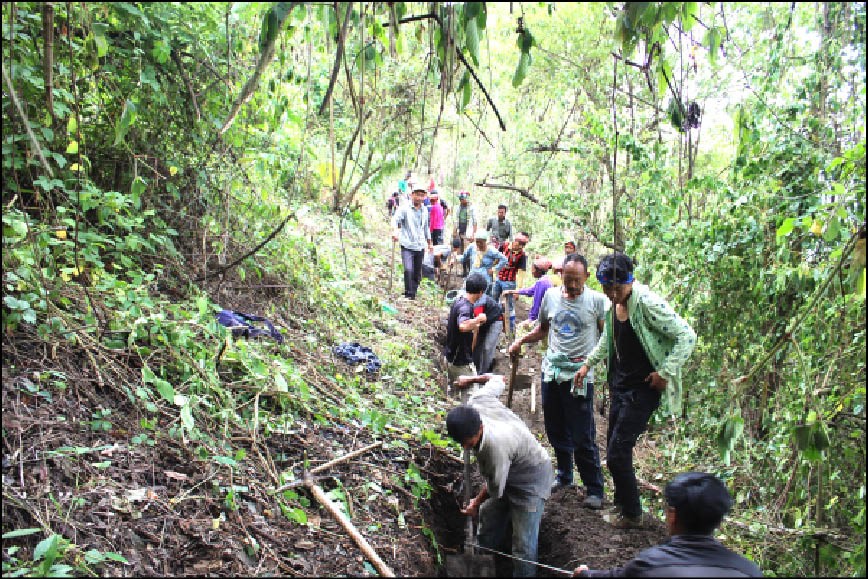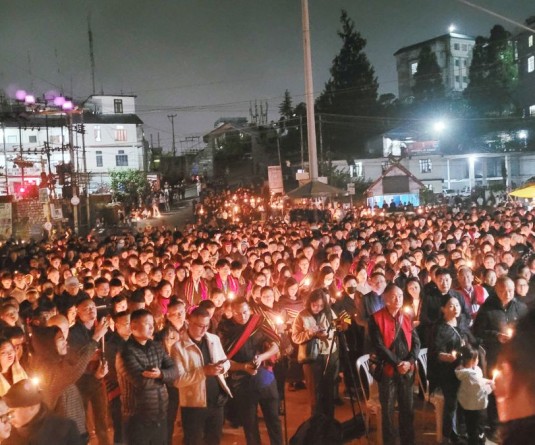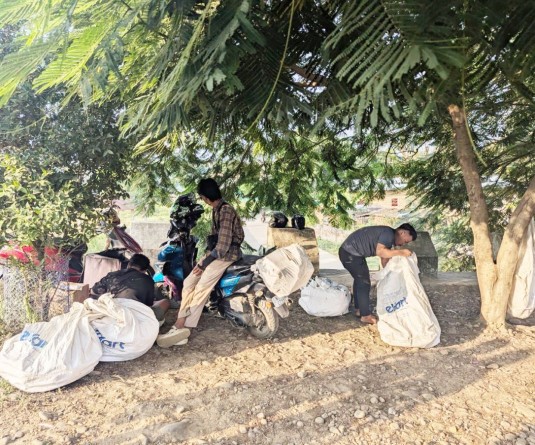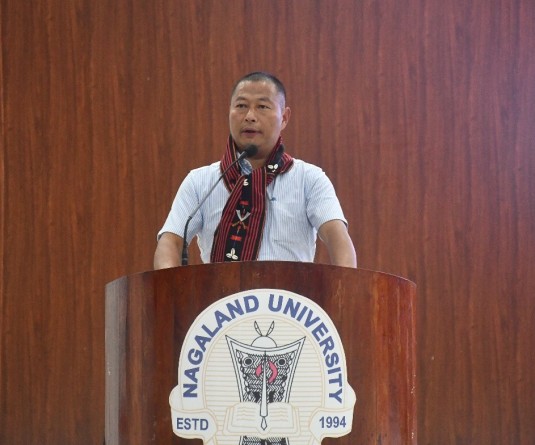Spring rejuvenation activities undertaken at Phuvkiu village under Pungro Sub-Division of Kiphire district. (Photo Courtesy: NEIDA)

Multi-stakeholder initiative on springshed development for water security in 100 villages
Dimapur, June 28 (MExN): Climate change in the form of rising temperature, erratic rainfall and rainfall intensity are impacting mountain aquifer systems on springs in the Himalayas, according to NITI Aayog Report (2018).
“In Nagaland, where groundwater in the form of springs are the lifeline of the communities, there are increasing evidence of springs discharge decreasing resulting in drying up of springs or springs becoming seasonal leading to acute shortage of water particularly during the winter months,” stated a press release issued by North East Initiative Development Agency (NEIDA).
Through springshed management based on the concept aquifer-based participatory springshed management, a multi-stakeholder consortium comprising of Departments of Land Resources, Rural Development, GoN, NEIDA, Tata Trusts, ACWADAM and People Science Institute (PSI) are working together to regenerate and recharge mountain aquifers for drinking water security thereby increasing the states populations’ resilience to climate variability and change.
“Springshed development enhances rainfall infiltration into the ground thus increasing the recharge capability of spring aquifers, increase biomass production, reduce drudgery especially for women and children and sustain the local ecosystem,” it stated.
The spring rejuvenation activities under phase-I have covered 41 springs in 36 villages across nine districts. Plantation and civil works in spring recharge areas are nearing completion in all the selected villages with active participation of village community members.
The springs were selected after conducting in-depth social and technical feasibility studies which has resulted in preparation of detail technical reports including hydrogeological mappings of springs. These studies are undertaken by trained para-hydrogeologists from the Land Resource Department. Data collectors have been selected and trained in 36 villages by LRD to collect rainfall data, spring discharge and in-situ water quality testing on a regular basis to assess the performance of the springs over the next 24 months.
Phase II will cover the remaining 64 villages in 11 districts and work will commence from July onwards. “On successful completion of this pilot phase, the vision of this initiative is to implement spring rejuvenation activities across all the villages in the state,” the release added.






